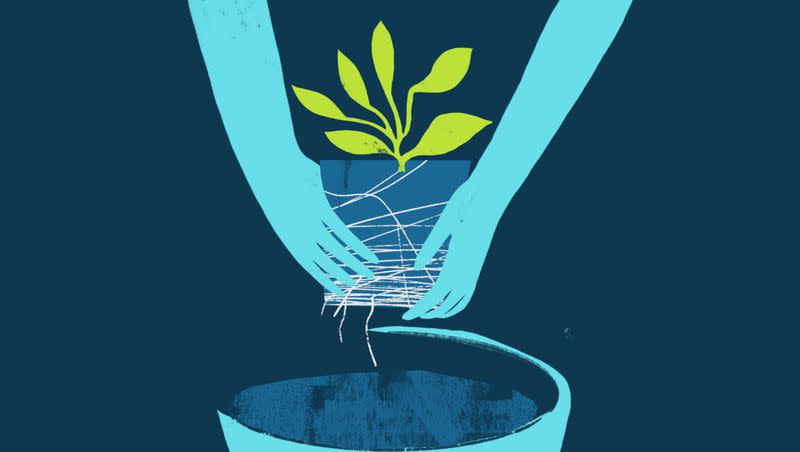Perspective: The case for choosing hope over despair

- Oops!Something went wrong.Please try again later.
In February, I lost a friend to hopelessness. I knew he had been struggling for a long time. He took his life when the world became too overbearing. He was 22 years old.
While every suicide is unique, the loss of my friend was part of a disturbing trend nationwide: suicides are increasing, especially among young men ages 15-24.
In the struggle to make sense out of my grief, I reached out to my friend, the writer David Von Drehle. “What a tragic story you have to tell today,” he wrote to me. “Loss of hope in a young person is so very sad to me, for it is almost always the case that a significant turn for the better is just around the next bend.”
I wish my friend could have seen around the bend, and I wish I could have seen him get there.
The death of my friend caused me to ask some reflective questions: What is most important to me in life? What kind of friend do I want to be? How could my outlook on life shift in ways that would enhance my overall sense of fulfillment?
When David wrote to me in February, he was a few months away from the publication of his new book, “The Book of Charlie.” Subtitled “Wisdom from the Remarkable American Life of a 109-Year-Old Man,” the book has appeared on bestseller lists since its release in May. When I read it, I knew why.
The story of Charlie White, who was David’s neighbor for seven years, is a case study in adaptability during times of dramatic societal change and personal tragedy. Described by the publisher as a “gospel of grit,” it is a blueprint for the art of thriving rather than simply surviving.
“The Book of Charlie” chronicles a life full of adventure. A physician, Charlie improvised techniques for early open-heart surgery, traveled through the Amazon as a guest of Peru’s president, and even skied the slopes of Alta on weekends away from Kearns Army Air Base.
More than a travel log, however, the biography of Charlie, born in 1905, reflects more than a century of American history and serves as an instructive reminder that uncertainty, pain and change — though often inescapable — do not have the power to force us into a state of paralysis or pessimism.
As a boy, Charlie endured the sudden death of his father. His first wife also died tragically. But he maintained a command over his own attitude and a strong resolve to press forward. He was born before radio and died in the era of iPhones, but Charlie learned to “befriend change,” even when change was uncomfortable or painful.
David equates Charlie with the early stoics who taught that we must only worry about the things within our control. Preaching this same principle, President Russell M. Nelson — who himself was refined by intense personal tragedy and is now a vigorous force of optimism in his golden years — has told members of his church that “the joy we feel has little to do with the circumstances of our lives and everything to do with the focus of our lives.”
As I reflect upon my own fears and the uncertainties of a rapidly changing world, it is encouraging — not daunting — to know that I am solely responsible for choosing the attitude with which I will approach the world.
When Charlie White was roughly my same age — in the 1920s — the future was as uncertain as it is in the 2020s. But Charlie learned to “find the next step. And take it.” He learned that “life is never as sure as we might think, nor as hopeless as it may appear.”
I still mourn the loss of my friend and so many of my peers. Choosing a life of optimism does not shield us from tragedy, and we should not expect a positive attitude to protect us from all pain. Rather, a course of optimism and courage implies believing — in times of pain and struggle — that, as David said, a “significant turn for the better is just around the next bend.”
We cannot control the hardships that befall us in life. But we can control our internal response to the external circumstances that lie outside of our control. This freedom serves as an equalizer for all human beings, regardless of our circumstance. Tragedy, uncertainty and change are out of our control. But hope is ours to choose.
Addison Graham is a rising senior at Brigham Young University and a student scholar at the Wheatley Institute.

